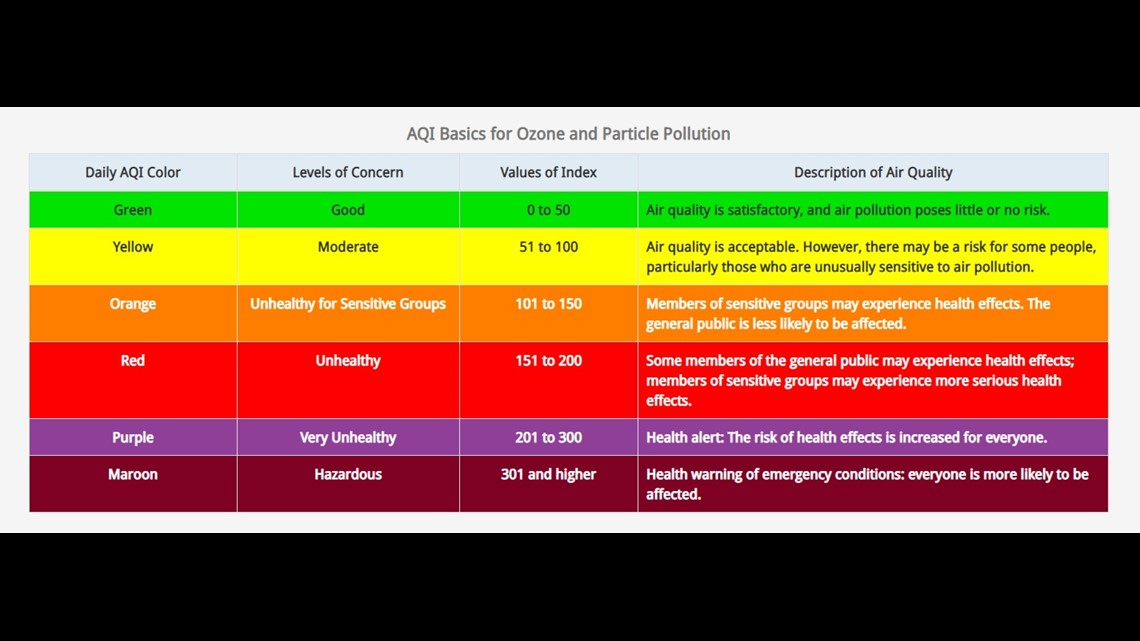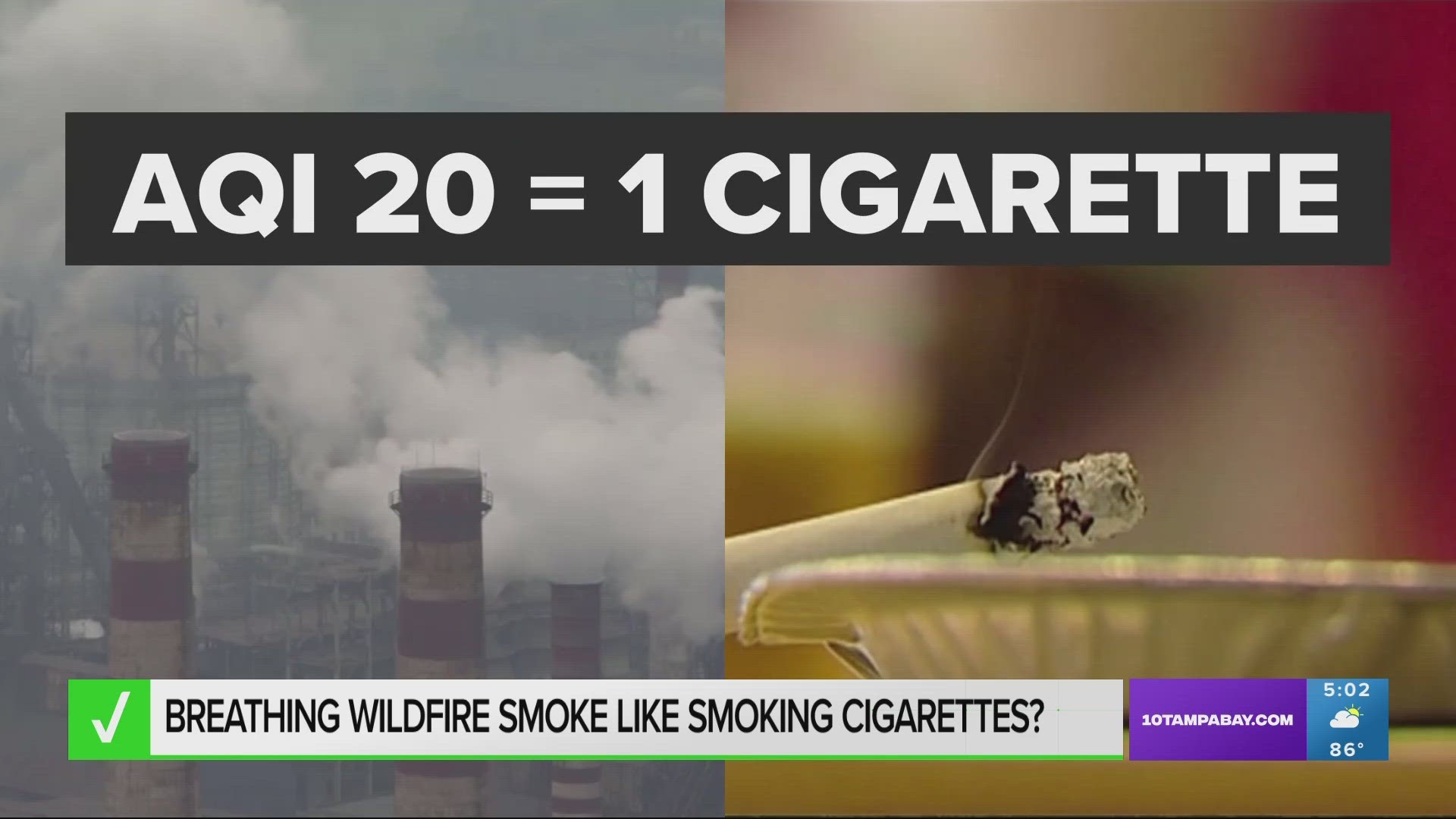TAMPA, Fla. — Thick, unhealthy haze continues to blanket portions of the country as smoke-filled air drifts south from wildfires burning in Canada.
Millions of people across North America are under air quality alerts with officials in major cities like New York urging residents to stay inside and mask up.
Amid viral images of an orange-shrouded New York City is a claim that being exposed to the current air quality in that city for 24 hours is equivalent to smoking about several cigarettes.
THE QUESTION
Is breathing in smoke from Canadian wildfires equivalent to smoking several cigarettes?
THE SOURCES
- Max Zhang, air quality & engineering professor at Cornell University
- Kirsten Koehler, associate professor at the Johns Hopkins Bloomberg School of Public Health
- Stanford University research on health impacts of wildfire smoke
- University of California, Berkely research comparing air pollution, cigarette smoking
THE ANSWER
Claims equating breathing in wildfire smoke to smoking cigarettes need context.
WHAT WE FOUND
Wildfire and cigarette smoke comparisons are not based on lab-proven or peer-reviewed data, said Max Zhang, a professor in air quality and engineering at Cornell University.
The health risk comparison between cigarette and wildfire smoke is accomplished largely through long-term formulas, Zhang explained to 10 Tampa Bay, looking at exposure and rates of mortality.
The analogy doesn’t account for the current acute situation, which is more comparable to “living with a chain smoker,” Zhang said.
While imperfect, he explained, the analogy is still effective.
Researchers at the University of California, Berkeley looked at average pollution levels, time of exposure, and the death rate from cigarettes to develop a formula comparing the impact of breathing polluted air to smoking cigarettes.


Many researchers have translated that formula into the Air Quality Index (AQI).
The AQI is a point system from 0 to 500 established by the Environmental Protection Agency (EPA) that describes how clean or unhealthy air is in a particular area. Readings of more than 200 are considered very unhealthy to hazardous.
In a research report on the health impacts of wildfire smoke, Stanford University researcher Kari Nadeau is quoted as saying that an AQI measurement of 20 is equivalent to smoking one cigarette a day, so communities exposed to wildfire smoke causing AQI of 150 for several days is equivalent to about seven cigarettes a day if someone were outside the whole time.
On June 7, the AQI in New York City was measured to be 204 – considered to be “very unhealthy,” or by Nadeau’s math equivalent to smoking a half pack of cigarettes in a day.
While cigarette smoke is the best analogy researchers have right now, Stanford researchers say more work needs to be done to account for the differences in toxins in wildfire smoke that may go beyond the dangers of cigarettes.
Kirsten Koehler at the Johns Hopkins Bloomberg School of Public Health said it's not a fair comparison.
"The chemical composition of the two types of smoke are not the same, and their impact on health may not be the same," she said. "Some health impacts can occur very quickly, while other health impacts happen when someone is exposed at high levels for years. So the comparison isn’t necessarily the same for someone who is exposed to wildfire smoke for a few days compared to someone who has smoked for decades."

